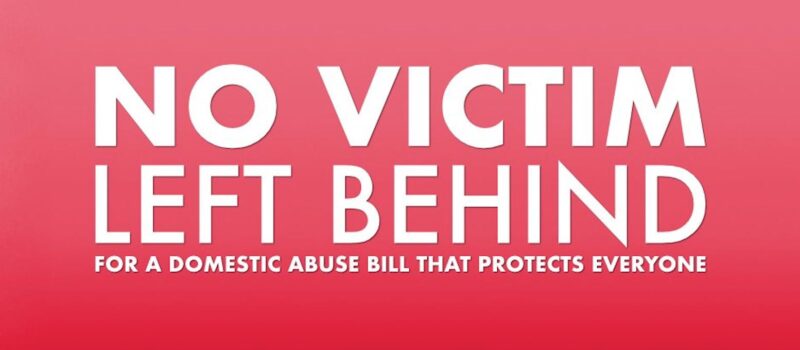Fleur Anderson MP Labour MP for Putney, Roehampton & Southfields

Domestic Abuse is far too common and far too hidden in our community and incidences have increased since lockdown. I am committed to working to achieve more support for victims and survivors of Domestic Abuse, justice for all victims, and to end the high and rising incidences of domestic abuse against women, men, children and older people.
If you are facing Domestic Abuse including financial, physical or sexual control – you can contact the National Domestic Abuse Helpline on 0808 2000 247.
I was honoured to speak at the second Domestic Abuse Conference organised by the South West London and St Georges Mental Health Trust and very supportive of the work they are doing to Break the Silence and work together.
Domestic Abuse Bill update
- Last year, 2.3 million people faced domestic abuse. The majority were women.
- 1 in 4 women will experience domestic abuse in their lifetime
- Domestic abuse costs a staggering £66 billion a year.
- 64% of referrals to women’s aids listed refuges are declined
COVID has compounded domestic abuse issues. ONS statistics released last week revealed a rise in domestic abuse related offences during the first UK national lockdown when compared to the same period in previous years. They also reveal a huge increase in numbers of calls to support services.
The police recorded 259,324 offences flagged as domestic abuse-related in the period March to June 2020. This represents a 7% increase from 242,413 in the same period in 2019 and an 18% increase from 218,968 in 2018.
The Domestic Abuse Bill is currently waiting to go through the House of Lords, but we don’t have a start date as yet. We are hopeful that it will be in the new year.
Labour MPs welcome the Bill and have campaigned successfully for the Bill and for additional provisions and especially:
- The creation of a Domestic Abuse Commissioner
- A Statutory duty on Local Authorities to provide refuge
- New protection orders
- Changes to cross examination rules and further special measures in family courtsto reduce the abuse continuing through the courts process
The over-arching campaign has always been for a bill that protects all – at the moment there are huge gaps in the legislation which mean not all groups are protected equally.
Our main asks remain:
*A broader statutory duty – this would replace the current narrow statutory duty on local authorities to support women in refuges (this is already in the Bill).
This broader duty would place a duty on all relevant public authorities to commission specialist domestic abuse support services for all persons affected by domestic abuse.
This would include:
-All adult and child victims in accommodation-based services, as well as adult and child victims that remain in the community
-Young people under 18 who are in an abusive relationship
-Adult perpetrators, to prevent re-offending
-Victims with protected characteristics, who have specific needs and face additional barriers to support.
*Better protections for migrant women – These include:
-an amendment that removes the No Recourse to Public Funds condition on any migrant survivors VISA, to allow the individual to access refuge;
-to extend provision for indefinite leave to remain to any migrant survivor of domestic abuse and to allow applicants access to welfare during this period;
-a ‘firewall’ between public bodies and immigration enforcement to ensure that all victims can safely report instances of domestic abuse and not fear their personal data will be shared with immigration services.
*Family courts and child safety – This amendment seeks to change the legal presumption that parental involvement furthers the child’s welfare, in cases where there is evidence that there has been domestic abuse. It also prohibits unsupervised contact for a parent awaiting trial or on bail for domestic abuse offences, or where there are ongoing criminal proceedings for domestic abuse. This amendment is vital for the safety of children and young people; inappropriate contact arrangements have led to cases of serious injury. abuse and even death for some children.
*Non discriminatory provision – This clause ensures all victims of domestic abuse are protected, regardless of their status, in line with Article 4(3) of the Council of Europe Convention on preventing and combating violence against women and domestic violence (Istanbul Convention). It will ensure provision of specialist services for those who face extra barriers, such as those from the LGBTQ community, those with disabilities, and Black and Minority Ethnic survivors and migrant women.
